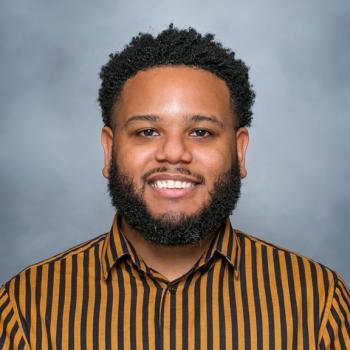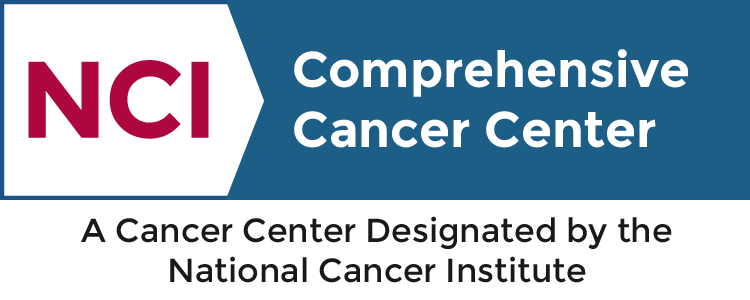SCI member Marvin Langston, PhD, was recently named a member of the inaugural cohort of Cancer Moonshot Scholars, which is part of the Biden Cancer Moonshot initiative. We spoke with him to learn more about his project that will be funded by the program, his research interests, and what advice he would give students pursuing a career in cancer research.
Can you describe your research interests?
My program of research is broadly defined as the epidemiology of benign and malignant prostate conditions. I’ve focused my research on three main questions. The first examines the role of sexually transmitted infections and other systemic infections on prostate damage and the ensuing prostate cancer risk.
Second, how do we appropriately model or define early-life risk factors for prostate cancers?
Third, are there ways we can harmonize molecular and clinical elements of urological condition diagnoses? In doing this, we can hopefully figure out ways to produce well-characterized outcomes for biomarker discovery and also look at etiology.
Finally, I’m really passionate about the cross-cutting themes of cancer health inequities based on race/ethnicity, sexual orientation, and gender identity.
Can you describe your project for the Cancer Moonshot Scholars program and what you hope it will achieve?
This project addresses prostate cancer screening, which happens to be very controversial. Mass screening using prostate specific antigen concentration (PSA) reduces prostate cancer mortality, but there’s the cost of significant overdiagnosis and overtreatment, so another approach is needed.
PSA-based risk-stratified screening captures the benefits of mass screening, such as reduced mortality, yet greatly reduces overdiagnosis. Under this approach, men with a higher baseline age-specific PSA level will receive more frequent screening and men with lower levels receive less frequent screening. Limited data from largely European populations support this approach, but the U.S. Preventative Services Task Force does not yet recommend it because we need more long-term studies to validate previous results.
In this project, we’re interested in testing stored blood samples for PSA in a large racially diverse cohort along with long-term clinical follow-up for prostate cancer outcomes to optimize the tenents of PSA-based risk-stratified screening. The first tenant is evaluating the utility of getting a baseline PSA test before age 50. The second is understanding if there’s an optimal rescreening interval after that baseline PSA test. The third is identifying subpopulations of men around age 60 who may consider stopping screening based on past PSA results. Finally, one of the most important aspects of the study from my perspective and for our research, we want to explore if Black men and men with a family history of prostate cancer, so men at higher risk, should initiate screening for cancer early and more frequently.
This project is a collaboration between Kaiser Permanente and researchers at Washington University in St. Louis.
How do you think cancer research in epidemiology and population health can influence cancer research in basic and clinical science and vice versa?
We often think about clinical and translational research as following a linear path of discoveries from basic science to testing therapeutics and clinical trials, and then understanding large-scale trends of risks and diseases, or disease distribution, in population health.
However, this is not how we think about it in population health. We understand that discoveries can be made at each level that inform these other disciplines. Often, there are risk factors that we’re interested in that can’t be studied in clinical trials because it’s unethical to assign harmful exposures to participants. Instead, we use observational studies to look at exposure and disease relationships, and these large-scale observational studies can be used to study some of these harmful effects.
I often use findings from basic science on pathways and mechanisms of action to inform the exposures that I explore and other factors that I need to consider in my models. I’ve talked a bit about how one of my research interests includes understanding how infections lead to prostate damage, so a lot of that work has been informed by basic science.
In terms of a clinical aspect, I often meet with urologists to understand ongoing issues in clinical practice or unanswered questions in areas where there are certain clinical practices or decisions that are ongoing that aren’t necessarily data-driven and trying to find data-driven solutions.
What do you consider your greatest professional achievement so far?
I’m passionate about research discovery, but one of the primary reasons I came to Stanford was to mentor students. I consider it one of my greatest accomplishments to be in the urologic cancer epidemiology lab and see the students’ growth and what they’re able to accomplish in such a short time. It’s been very impactful to see the students’ excitement for research and be able to teach them new methods. One of my students presented work from the lab at the American Society for Preventative Oncology national meeting. It was really fulfilling to be there and see him present and have our work highlighted in that way.
What advice would you give to students considering a career in epidemiology and population health research and to early-career researchers in the field?
Don’t be afraid to pursue a passion project even if it doesn’t lead to grant funding or fame right away. Often, when you’re early in your career, you can feel like every project you engage in has to be published in a high-impact factor journal or that you immediately need collaborations with the rock stars in your field to move forward or be seen. However, if you’re really interested and passionate about a line of research you’ve been working on for a while, eventually the time, space, and opportunity may come around for you to get that project funded.
For myself, I’ve been studying PSA in young men for over 10 years now, and I was really studying PSA as a marker for prostate damage, observing how it rose and fell post-acute and long-term infections. If you would have asked me six years ago if I thought I’d receive funding with the goal of optimizing PSA screening, I likely would have said no.
My trajectory is one example illustrating that as you pursue a certain research area, you will see funding opportunities that come along using unique data sources and populations that can connect to your previous work. All of this provides a good platform for you to move forward and be successful.
Another important point. While we all still struggle with being overcommitted and saying no, however I would encourage early-career researchers and students to say yes more and lean into a variety of opportunities. An opportunity to have a small role on a research project could turn into a larger role and the chance to do really impactful work.
What book and/or movie read/seen recently would you recommend and why?
“The Kite Runner” by Khaled Hosseini. It’s an oldie but a goodie. I’ve read it a few times, and I get something new from it with each re-read. I decided to re-read it recently because the ongoing invasion of Ukraine made me interested in how war has changed and impacted daily life. The book explores how family is impacted in Afghanistan by the invasion of the Soviet Union. There are many quotes from the book that resonate with me, and I actually have one posted in my home: “I wonder if that was how forgiveness budded, not with the fanfare of epiphany but with pain gathering its things, packing up, and slipping away unannounced in the middle of the night.” It’s so poignant, and I feel like it wraps up forgiveness for me.
September 2023
By Katie Shumake



